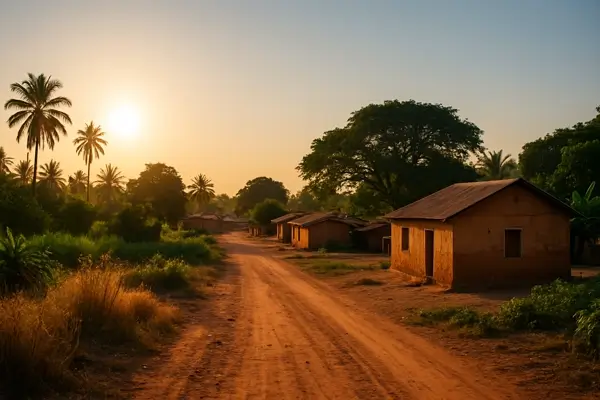
First Sub-Saharan African Country to Gain Independence – Ghana was the first country in Sub-Saharan Africa to gain independence from colonial rule, achieving freedom from Britain on March 6, 1957, under the leadership of Kwame Nkrumah.
Gold Coast – Before independence, Ghana was known as the Gold Coast due to its rich deposits of gold, which made it an important center of trade during the colonial era. Ghana is still one of the world’s leading gold producers today.
Cultural Diversity – Ghana is home to a rich tapestry of cultures, with over 100 ethnic groups. The largest groups include the Akan, Mole-Dagbani, Ewe, and Ga-Dangme, each with its unique language, traditions, and festivals.
The Birthplace of Pan-Africanism – Ghana played a significant role in the Pan-African movement, with Kwame Nkrumah being a prominent figure advocating for the unity and independence of African nations.
Vibrant Festivals – Ghana is known for its vibrant and colorful festivals, such as Homowo (celebrated by the Ga people) and Aboakyer (celebrated by the Winneba people), which highlight the country’s rich cultural and spiritual traditions.
Lake Volta – Lake Volta, located in Ghana, is one of the world’s largest artificial lakes, created by the Akosombo Dam. It is crucial for hydroelectric power generation and is a major source of income and transportation for the region.
Ghanaian Cocoa – Ghana is one of the world’s largest producers of cocoa, and the country is well-known for its high-quality beans, which are a key ingredient in the global chocolate industry.
Rich Traditional Music – Ghana has a long tradition of music and dance, with drumming playing an integral role in daily life and celebrations. Popular music genres include highlife, hip life, and gospel music.
Historic Slave Trade Ports – Ghana is home to several historic forts and castles, like Cape Coast Castle and Elmina Castle, which were used during the transatlantic slave trade. These sites are now UNESCO World Heritage Sites and serve as reminders of the country’s painful history.
The Kente Cloth – Kente, a brightly colored and intricately woven cloth, is one of the most recognizable symbols of Ghanaian culture. It is traditionally worn at special events and ceremonies, such as weddings and graduations, and represents the rich history of the Akan people.
